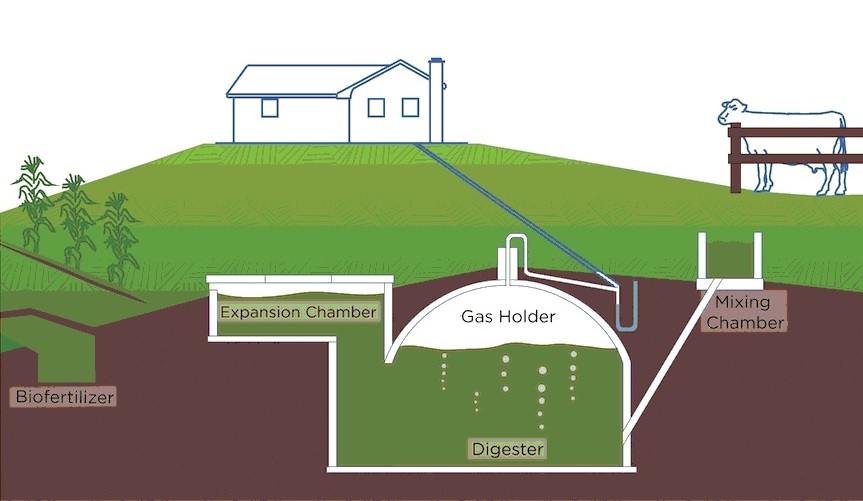Educational and Training Programs for Biogas
Theoretical and Practical Training
One of the essential elements in the implementation of a biogas program is the proper training of those to be responsible for planning, constructing, operating and repairing the plants. Theoretical and practical training must therefore be regarded as an indispensable part of the implementation strategy. Training, in contrast to education, focuses on those who are actually in touch with biogas technology, either as part of the biogas program or as end-users.
Target Groups for Practical Training
In addition to the general knowledge conveyed in vocational programs, special training centering on the practical skills required for everyday plant operation should be made available to:
- the owner-operators of biogas systems, mainly housewives and farmers;
- servicing and maintenance personnel;
- masons, fitters, plumbers and factory personnel involved in the construction or manufacture of biogas systems and system components;
- planners of biogas units and developers of biogas technology;
- organizers, promoters and multipliers, whereby the latter may be a social worker, the head of a biogas task force, foundation or self-help organization, or even a reporter or film producer working on a biogas-related project.
Teaching Methods
Depending on the objectives of a particular training program, not only the content, but also the teaching methods involved must be tailored to the respective target group. The success of a training program is largely dependent on the time and duration of its presentation. The target group must be “available”, i.e. most housewives can only spare time for instruction during certain hours of the day, and then only directly at or close to home, and farmers can rarely afford the time during harvesting season.
Relevance for the Target Group
The content of a biogas training program must also reflect the real needs of the individual for more information. The construction of biogas systems, for example, if taught to masons, should not be given mere theoretical treatment. On-the-job training combined with theoretical teaching (half day each over four weeks) has proven successful in training courses for engineers in Tanzania. The information being conveyed must be of direct and recognizable relevance for the target group. It is of particular importance that training seminars offered to craftsmen and servicing personnel, combine practical demonstration and practicing with simple theory.
The first few seminars held in a region usually involve certain difficulties due to a lack of teaching aids, illustrative material or classrooms. It may also be difficult to convince a farmer that students of a training course want to build a biogas digester on his farm. In many instances, the use of school rooms during school vacation and a single demonstration plant will have to suffice in the beginning. Most technical and agricultural schools will gladly offer their support.
Educational Programs
Educational programs are defined as formal know-how transfer in schools, colleges or courses for the general public and potential users. They create awareness about biogas technology which goes beyond of what is transmitted in PR campaigns. Educational programs must be professionally supported, integrated and administered on a national, regional and communal scale by the respective ministries and authorities responsible for agriculture, education, health & hygiene and other relevant fields. Private educational institutions or the biogas program itself can as well get operational in carrying out educational programs.
Curriculum Development
Biogas technology can be included in the curricula of elementary and secondary schools in two ways: first, it can be included in subjects such as biology, physical science, chemistry or agriculture. Second, it can be taught in a block, to which the mentioned subjects ‘donate’ time and teaching capacity. Teachers would need to be educated first, in order to develop a curriculum together with the biogas program.
Often, individual schools are not free to develop their own curricula. To create a conducive atmosphere for integrating biogas technology into school curricula, this has to be lobbied for on the national level, where nationwide applicable curricula are developed.
Agricultural colleges and universities are more free to offer specific biogas-courses than schools. Here, it is more the personal enthusiasm of lecturers and deans of faculties that plays the decisive role if or if not biogas technology is taught in a course. At least the practical use of biogas systems should be included in the curricula of medical schools. The professional know-how of planning and constructing a biogas plant should be conveyed within the framework of technical/vocational school training.
Demonstration models of biogas systems should be available in schools which have included biogas in their teaching. Excursions to nearby biogas plants will greatly awaken the interest of students in biogas technology.
